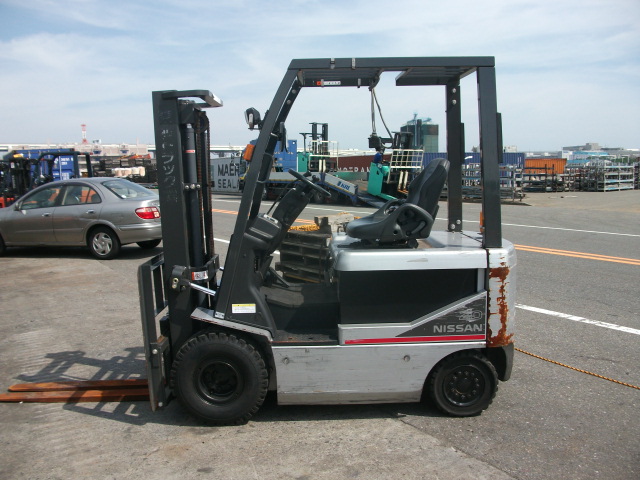The battery emits no harmful substances and produces zero emissions
Yesterday, Nissan presented a new concept forklift at CeMAT 2008 Hannover, Germany. ‘So what?’ You may wonder, “So what?” The all-new Li-ION battery from Nissan powers this new Nissan forklift. These same batteries will also power Nissan’s Denki Cube EV (EV).
Automotive Energy Supply Corporation (AESC), a joint venture of Nissan and NEC, developed the advanced Li-ION battery technology. It was first displayed on the Nissan Mixim concept vehicle at the Frankfurt Motor Show. The Nissan PIVO 2 concept vehicle also features the AESC.
While the Li-ION battery is still being developed, it is expected to make its forklift debut sometime in 2009. Then, in 2010, Nissan will launch an EV using the technology in Japan. Globally, Li-ION-powered electric cars should be available by 2012.Environmental benefits.
Li-ION technology doesn’t use any restricted pollutants like cadmium or lead, mercury, sulfuric acid, and so on. There are no gas emissions from charging so there is no need to have dedicated charging bays.Less energy use (less CO2) Operational benefits (Compare with conventional lead-acid type batteries).
Quick Charge It is faster to charge a Li-ION battery and it allows for longer operating hours. This makes it easier to work with and less likely to need additional batteries.

Maintenance free The battery cell’s maintenance is almost zero since there is no need to refill them with water, as is the case for lead-acid batteries.High power Li-ION batteries are more powerful and have higher energy. This results in better performance and longer uptimes.
Longevity The polar plates on a lead-acid conventional battery can become sulphated over time. This causes extreme resistance and makes it difficult to recharge again. This type of “waste” is not caused by the almost perfect, reversible reaction between electrons and Liion. This results in a longer battery lifespan which significantly reduces the need for replacement investments.
Compact Li-ION batteries are smaller than conventional lead-acid batteries. This allows for more flexible design and arrangement of the forklift truck. Excellent (Dis)charge Performance There is less energy lost during charging and discharging and therefore, the Li-ION battery takes less time to fully charge. Regenerative braking also provides more energy recovery, which results in a longer working time.